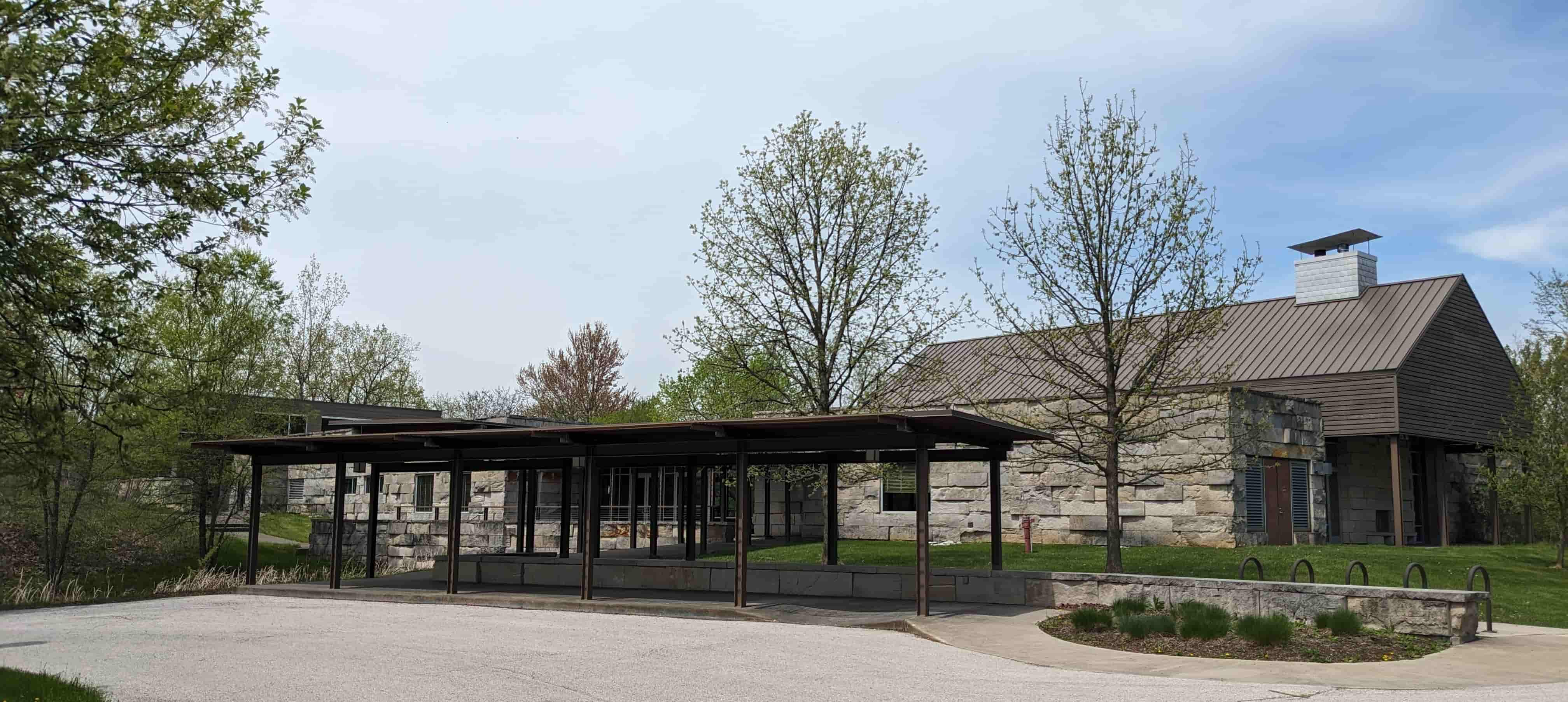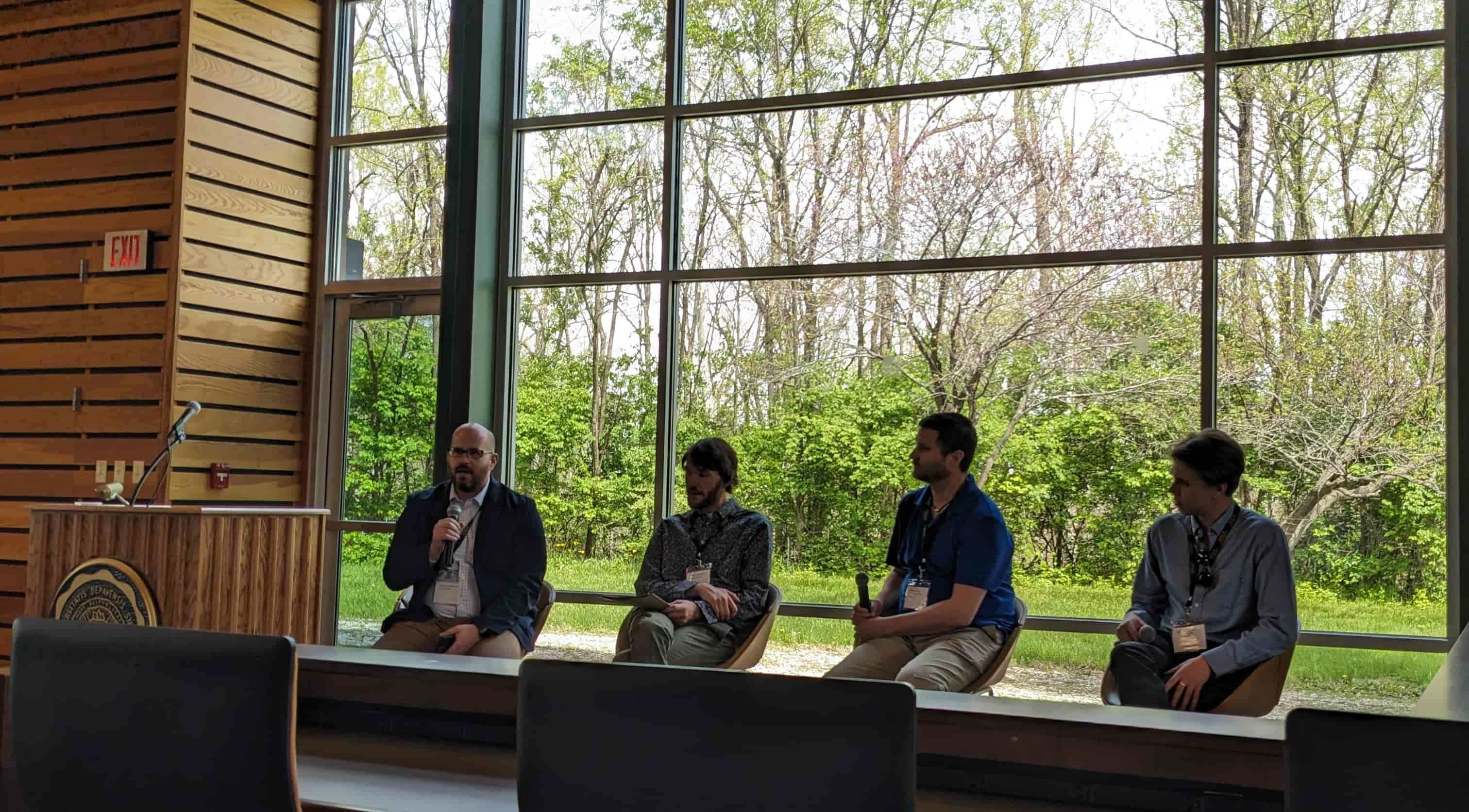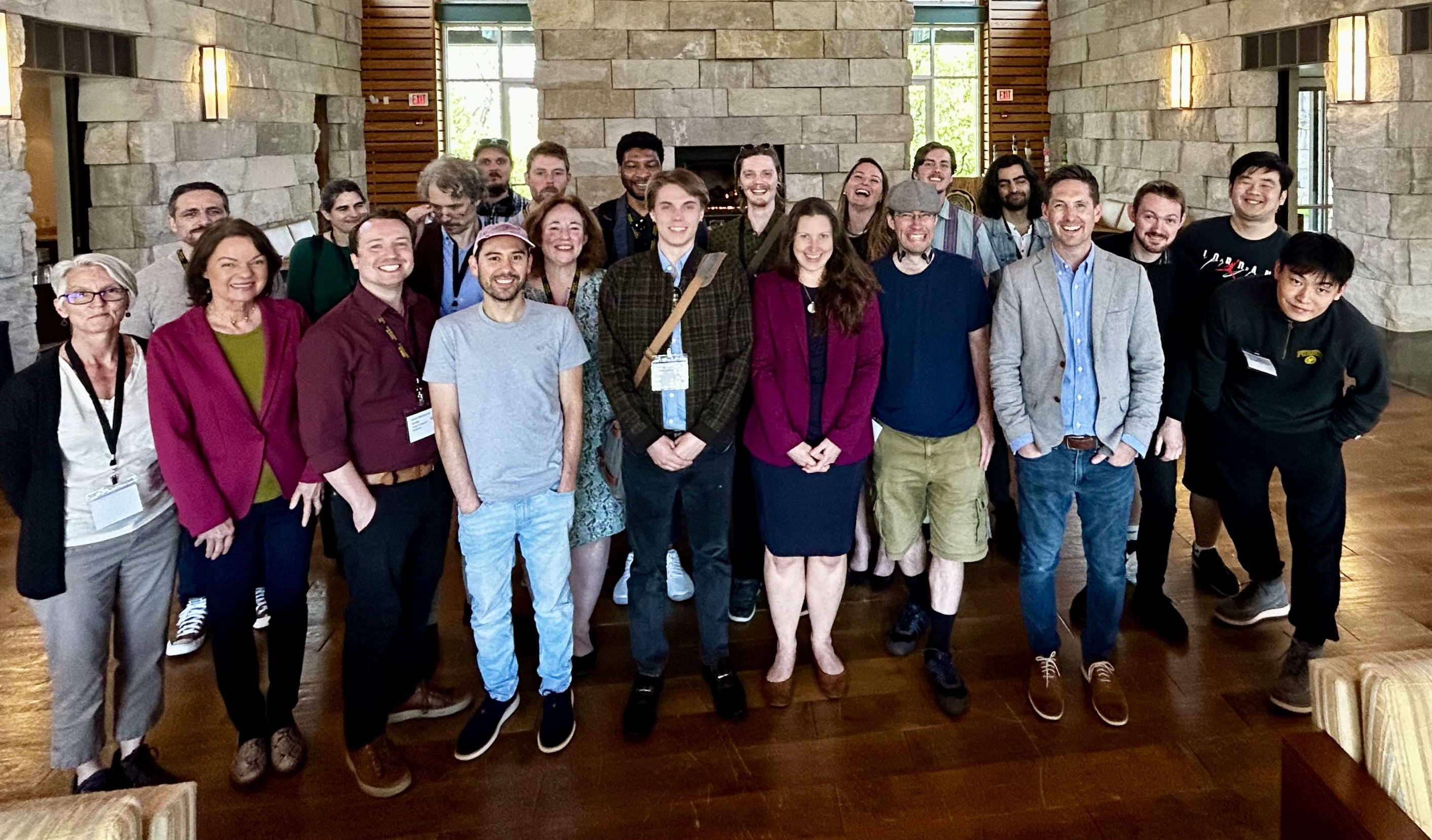Philosophy Ph.D. student reflects on experience at Midwest Ethics Symposium
My name is Griffin Kiegiel and I am a Ph.D. candidate in Wayne State University’s philosophy program. This past April I attended the second annual Midwest Ethics Symposium (MES) at Depauw University, thanks to travel support from the Robert J. Yanal Legacy Endowment Fund. I would like to share some details of my experience for anyone looking to understand philosophy conferences a little better.
The event was held in the beautiful Prindle Institute for Ethics, surrounded by a small, lush forest and neighboring a gorgeous hike-able quarry. I was incredibly nervous for the event as this was not just my first time presenting at a philosophy conference—it was also my first time attending one. As someone with moderate social anxiety, I was apprehensive about going alone, but I am very glad I made the five-plus hour journey to Greencastle, Indiana.
Through the experience I came to appreciate three key reasons graduate students in philosophy should attend and present at conferences: networking, feedback and experience.

Making new connections
The most obvious reason to attend an event with a bunch of strangers is to turn some of those strangers into friends, making you a person with potentially fruitful academic connections. I admittedly felt slightly uncomfortable with the prospect of developing friendships for instrumental reasons, but while I was at the conference, I never felt any pressure to do so. I find that philosophy is a field that tends to attract thoughtful, kind people who are easy to talk to and have interesting things to say. There was never a moment in which I felt like I was dragging myself through a dull conversation for the mere sake of advancing my career. I met some genuinely wonderful people.
When I arrived on the first day, I made myself a cup of complimentary tea and sat in the waiting area with some of the other attendees. A simple, “What are you studying?” revealed that my couch neighbors and I had a lot to talk about. I was lucky enough to befriend a student from Iowa and we continued to check in with one another throughout the conference, discussing the presentations and the interesting questions they provoked. Meeting just one person early in the conference did a lot towards making me feel comfortable there.

Real-time feedback
Perhaps my favorite part about the experience was how it helped with my academic work. I was invited to present a paper entitled “Conscious AI and the Climate Crisis.” In the paper, I highlight some of the environmental consequences we may encounter if AI continues to develop and gains some level of consciousness. (Reach out to me if you’d like to discuss more!)
While one can certainly receive feedback on a paper by handing it to friends and colleagues, conferences offer the unique opportunity to hear from a wide range of educated perspectives in a relatively brief amount of time. And if a 15-minute Q&A session does not sound long enough to get the feedback you’re looking for, rest assured there is ample opportunity to talk with others during the lunch breaks and after the day’s scheduled events. Many people will be more than willing to do so.
Conferences are also a great way to motivate oneself to complete a project. Graduate school can sometimes be challenging as one’s time management skills are put to the test, with procrastination and fatigue becoming some of the greatest obstacles towards earning that master’s or Ph.D. Many graduate students I talked to employed a similar strategy of submitting an abstract to several conferences in the hopes of being accepted, without having written the full paper. Once they were accepted at one or more events, this provided a deadline and some extrinsic motivation to complete the project and make progress toward their degree.
Unlocking opportunities and experiences
The opportunity to travel and experience life on other campuses is another excellent benefit of going to philosophy conferences. I have personally spent much of my academic career in city universities, so it was very refreshing to spend some time in a small, quiet Indiana town.
As I walked through the quad, I felt very relaxed and nearly nostalgic for a college experience that never was. I have absolutely no regrets about choosing to be a part of Wayne State University, but I appreciated the perspective I gained by walking on some different grass.

Finally, I find it pertinent to tell those thinking about attending a philosophy conference that the process is very easy, thanks to Wayne State’s incredible faculty. I am very grateful for the support I received while submitting to the conference, preparing for my presentation and applying for travel funds.
There are many helpful and kind people available to help you have the best conference experience possible.
Griffin Kiegiel, Ph.D. candidate in philosophy